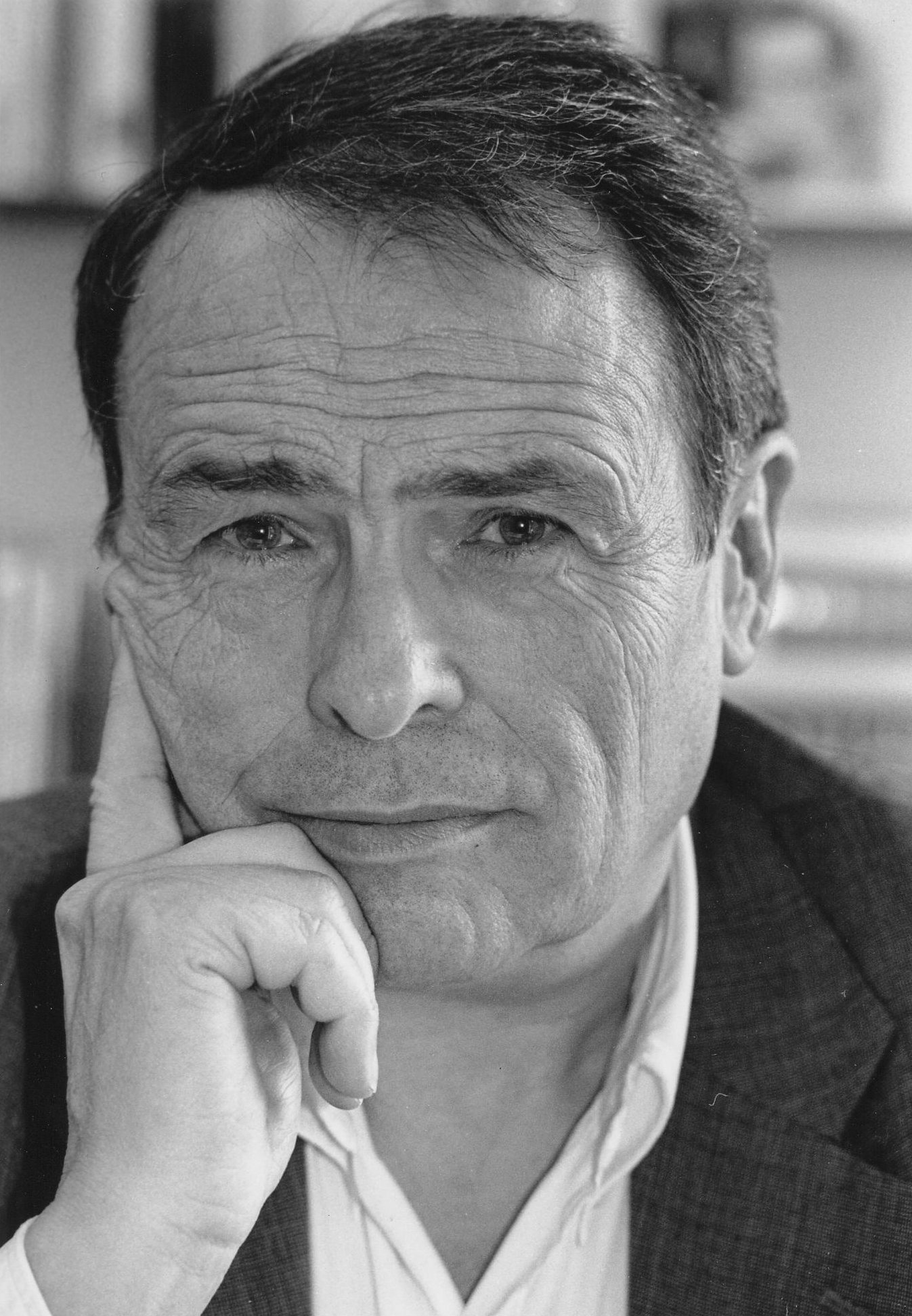Pierre Bourdieu
Dublin Core
Title
Pierre Bourdieu
Description
Pierre Bourdieu was a French sociologist who studied how postwar societies preserved inequality while priding themselves on the opportunities they furnished for “social mobility”. He focused, in particular, on the role that culture and cultural institutions (like schools and art galleries) played in preserving this inequality. The postwar France that Bourdieu studied was a place of great optimism and expansion, with the benefits of culture and education greatly emphasised. Bourdieu, who described himself as a “killjoy”, asserted that access to culture did not deliver the positive outcomes its promoters claimed. Instead, the heavy reliance on schools and diplomas as instruments for social mobility had unexpected consequences. Students with educated parents fared better in school and, now with a diploma, felt like their life outcomes were legitimately earned rather than inherited. Like schools, access to art galleries was subtly restricted. There was a hidden cost not listed on the entry ticket: in addition to the price of admission, one had to be educated enough to understand and enjoy the paintings. This meant that the gallery remained the private property of the cultured rather than the public property of all. So in addition to money, or “economic capital”, Bourdieu pointed to another resource, “cultural capital”, which provided people from educated backgrounds with an advantage in a world where access to positions of power depends on academic credentials. Bourdieu thought that this should complicate an account of social hierarchy that treats it as strictly economic. In addition to a person’s economic portfolio, he thought, it’s important to include a cultural one.
Dr Geoffrey Mead, Social Theorist, Sociologist.
Dr Geoffrey Mead, Social Theorist, Sociologist.
Rights
“Pierre Bourdieu, portrait” by Bernard Lambert is licensed under CC BY-SA 4.0.
Person Item Type Metadata
Birth Date
1930
Birthplace
France
Death Date
2002
Occupation
Social Theorist, Philosopher
Bibliography
Bourdieu, P., & Wacquant, L. (2013). Symbolic capital and social classes. Journal of classical sociology, 13(2), 292-302.
https://journals.sagepub.com/doi/abs/10.1177/1468795X12468736Bourdieu, P. (2010). Sociology is a martial art: political writings by Pierre Bourdieu. Edited by Gisèle Sapiro, translated by Priscilla Parkhurst Ferguson, Richard Nice and and Loïc Wacquant. New York: New York.
Bourdieu, P. and Wacquant, L. (2007). Invitation to Reflexive Sociology. Chicago: University of Chicago Press. https://press.uchicago.edu/ucp/books/book/chicago/I/bo3649674.html
Bourdieu, P. (2002). Masculine Domination. Translated by Richard Nice. Stanford, CA: Stanford University Press.
Bourdieu, P. (2000). Making the economic habitus: Algerian workers revisited. Ethnography 1(1), 17-41.
https://journals.sagepub.com/doi/abs/10.1177/14661380022230624
Bourdieu, P. (1999). The weight of the world: Social suffering in contemporary society. trans. Priscilla Parkhurst Ferguson. Cambridge, UK: Polity. Accessed July 11, 2022.
https://archive.org/details/weightofworld00pier.
Bourdieu, P. (1999). Symbolic violence and political struggles. In Pascalian meditations. 164–191. Cambridge, UK: Polity.
Bourdieu, P., and Wacquant, L. (1999). "On the cunning of imperialist reason." Theory, Culture & Society 16(1), 41-58.
https://journals.sagepub.com/doi/abs/10.1177/026327699016001003
https://journals.sagepub.com/doi/abs/10.1177/026327699016001003
Bourdieu, P. (1999). Acts of Resistance: Against the Tyranny of the Market, London, NewYork: The New Press. Accessed July 11, 2022. https://archive.org/details/actsofresistance0000bour.
Bourdieu, P. (1993). "The Sociologist in Question". In Sociology in Question, 20-35. London: Sage.
Bourdieu, P. (1991). First Lecture - Social Space and Symbolic Space: Introduction to a Japanese reading of Distinction, Poetics Today 12(4), 627-638.
https://www.jstor.org/stable/1772705
Bourdieu, P. and Passeron, J.C. (1990). Reproduction in education, society and culture, Vol. 4. Sage.
Bourdieu, P. (1990). The Logic of Practice.Translated by Richard Nice. Stanford, California: University Press. Accessed July 11, 2022. https://archive.org/details/logicofpractice0000bour/page/n7/mode/2up.
Bourdieu, P. (1986). The Forms of Capital. In J Richardson (ed.), Handbook of Theory and Research for the Sociology of Education, 241-258. New York, Greenwood. Accessed July 11, 2022.
https://www.academia.edu/download/56148162/Bourdieu_The_Forms_of_Capital.pdf
Bourdieu, P. (1984). Distinction: A Social Critique of the Judgement of Taste. Translated by Richard Nice. London: Routledge & Kegan Paul.
https://www.taylorfrancis.com/chapters/edit/10.4324/9780429499838-20/distinction-social-critique-judgement-taste-pierre-bourdieu
Secondary Text
Elliott, A. (2020). Structuration Theories: Giddens and Bourdieu. In Routledge Handbook of Social & Cultural Theory, 57-76. London: Routledge.
https://www.taylorfrancis.com/chapters/edit/10.4324/9781315149714-5/structuration-theories-anthony-elliott
Thatcher, J., Ingram, N., Burke, C. and Abrahams, J. (2018). Bourdieu: The Next Generation, The Development of Bourdieu's Intellectual Heritage in Contemporary UK Sociology. Routledge. https://www.routledge.com/Bourdieu-The-Next-Generation-The-Development-of-Bourdieus-Intellectual/Thatcher-Ingram-Burke-Abrahams/p/book/9781138596351?source=igodigital
Jenkins, R. (2014). Pierre Bourdieu, ‘Practice, Habitus and Field’, in Pierre Bourdieu, 66-102. Taylor and Francis.
Wacquant, L. (2011). "Habitus as topic and tool: Reflections on becoming a prizefighter." Qualitative Research in Psychology 8(1), 81-92.
https://www.tandfonline.com/doi/abs/10.1080/14780887.2010.544176
https://www.tandfonline.com/doi/abs/10.1080/14780887.2010.544176
Susen, S., and Turner, B.S. (eds.). (2011). The legacy of Pierre Bourdieu: critical essays. Anthem Press.
Adkins, L., and Skeggs, B. (eds.). (2004). Feminism After Bourdieu. Oxford: Blackwell. Accessed July 11, 2022.
https://www.researchgate.net/profile/Lisa-Adkins/publication/27224492_Feminism_After_Bourdieu/links/543751b00cf2dc341db4d591/Feminism-After-Bourdieu.pdfBourdieu, P., Chamboredon, J.C. and Passeron, J.C. (1991). The craft of sociology: Epistemological preliminaries. Walter de Gruyter.
Extra Resources
Bourdieu, P (2002). Sociology is a Martial Art: La Sociologie est un sport de combat, Directed by Pierre Carles, Produced by Annie Gonzalez and Veronique Fregosi. Brooklyn: Icarus Films.
First Erving Goffman Prize Lecture, 1996, Berkeley. (2018, November 14). YouTube. Accessed July 11, 2022.
https://www.youtube.com/watch?v=1D1zqEpwxQ4,
Pierre Bourdieu - On the limits of intellectuals (Homo Academicus) - English CCs. (2022, May 2). YouTube. Accessed July 11, 2022.
https://www.youtube.com/watch?v=ObKnAoybfN8,
First Erving Goffman Prize Lecture, 1996, Berkeley. (2018, November 14). YouTube. Accessed July 11, 2022.
https://www.youtube.com/watch?v=1D1zqEpwxQ4,
Pierre Bourdieu - On the limits of intellectuals (Homo Academicus) - English CCs. (2022, May 2). YouTube. Accessed July 11, 2022.
https://www.youtube.com/watch?v=ObKnAoybfN8,
Citation
“Pierre Bourdieu,” Mapping Social Theory and Sociology, accessed December 15, 2025, https://omeka.cloud.unimelb.edu.au/mapping-social-theory-and-sociology/items/show/405.

